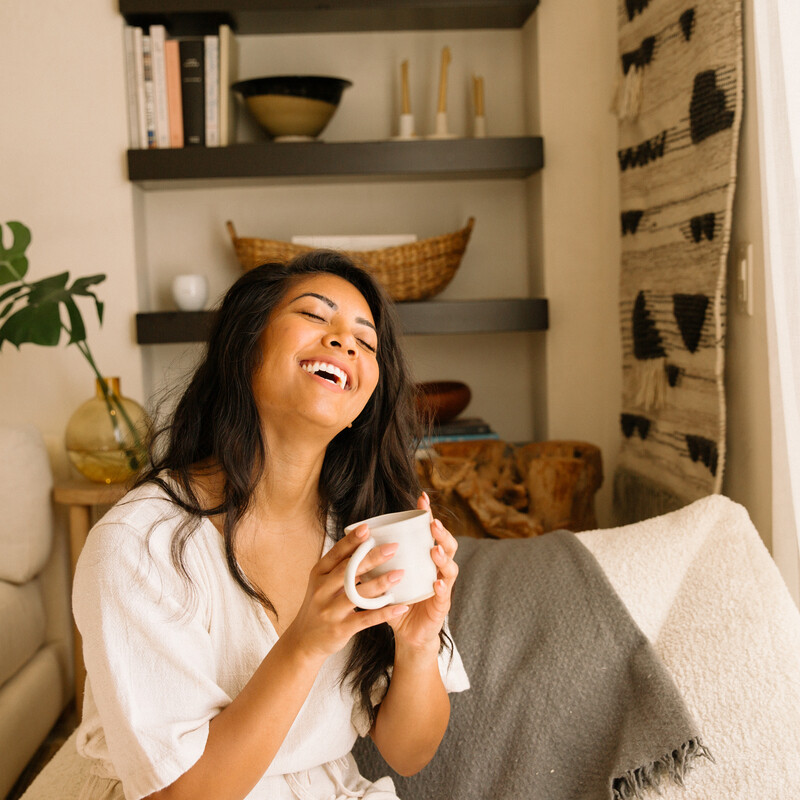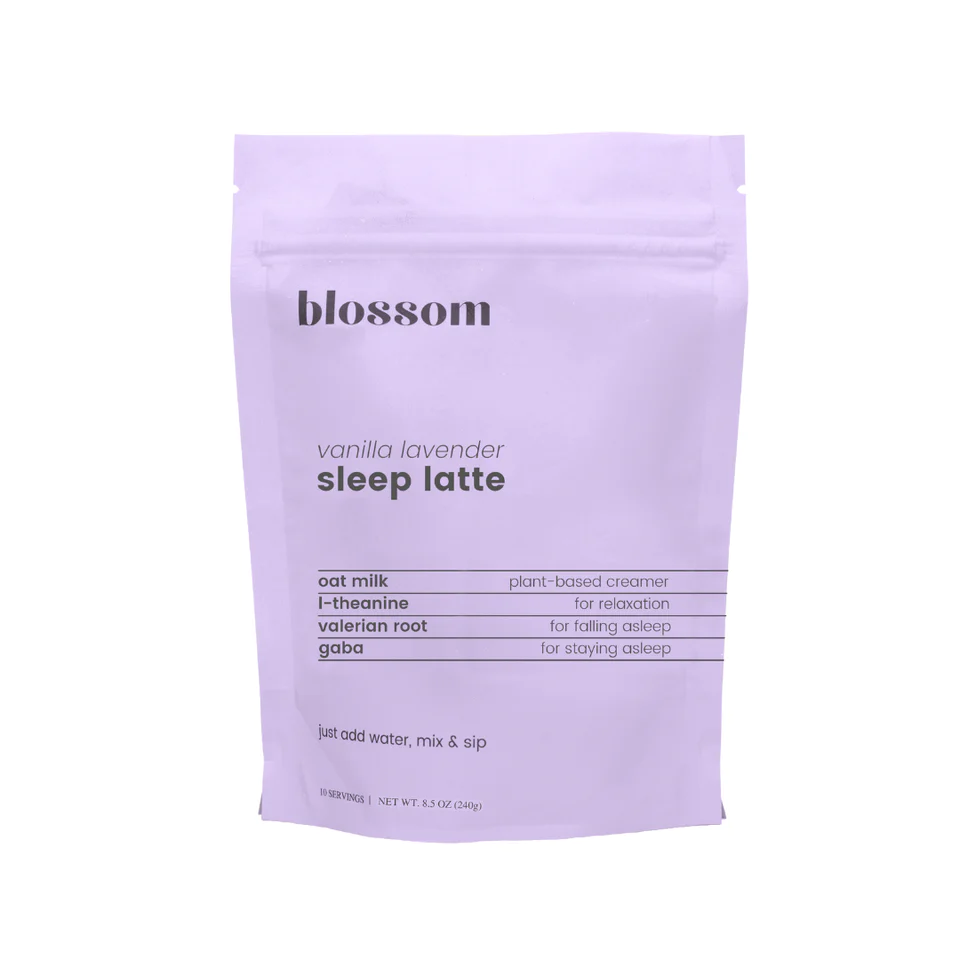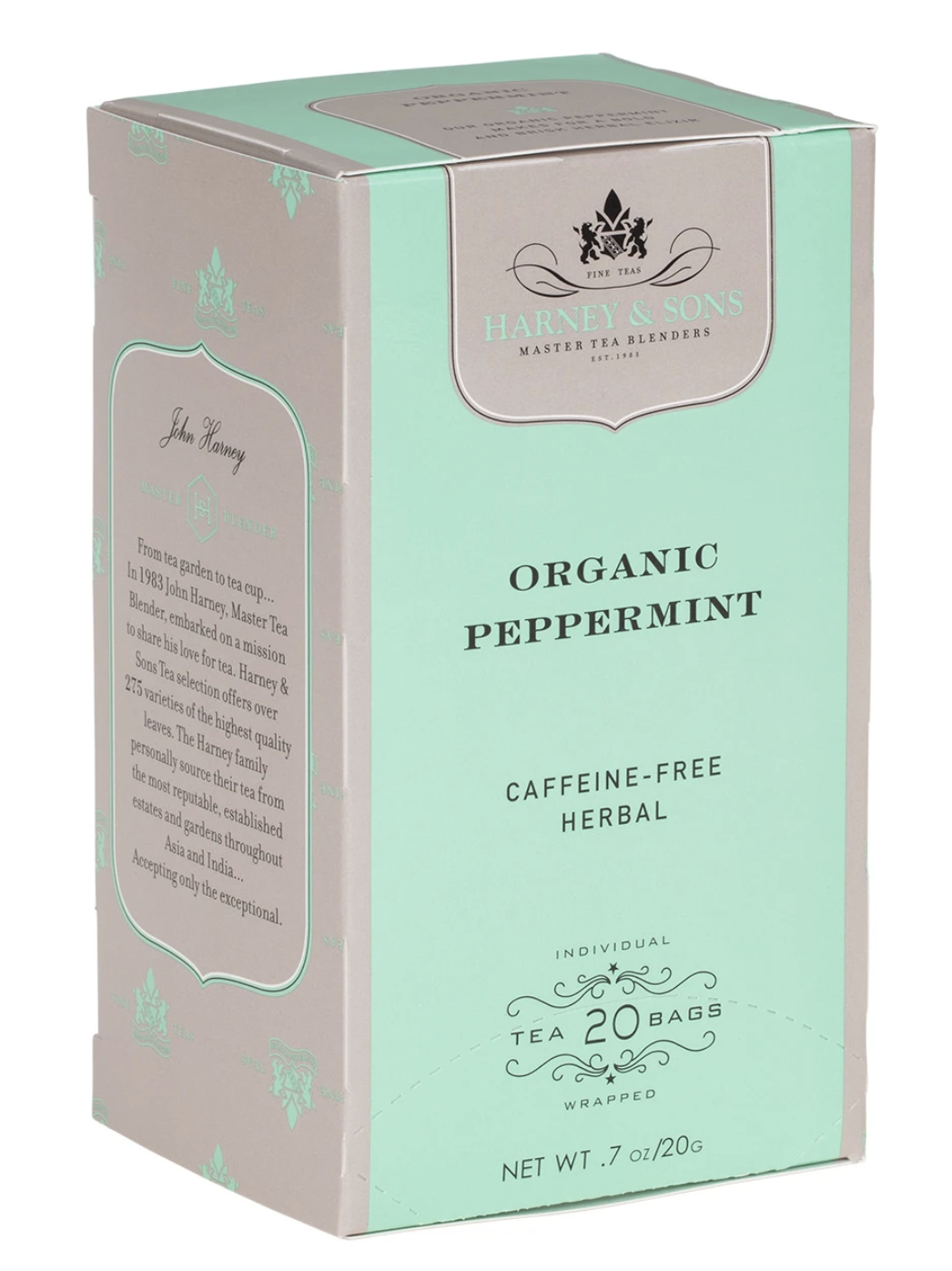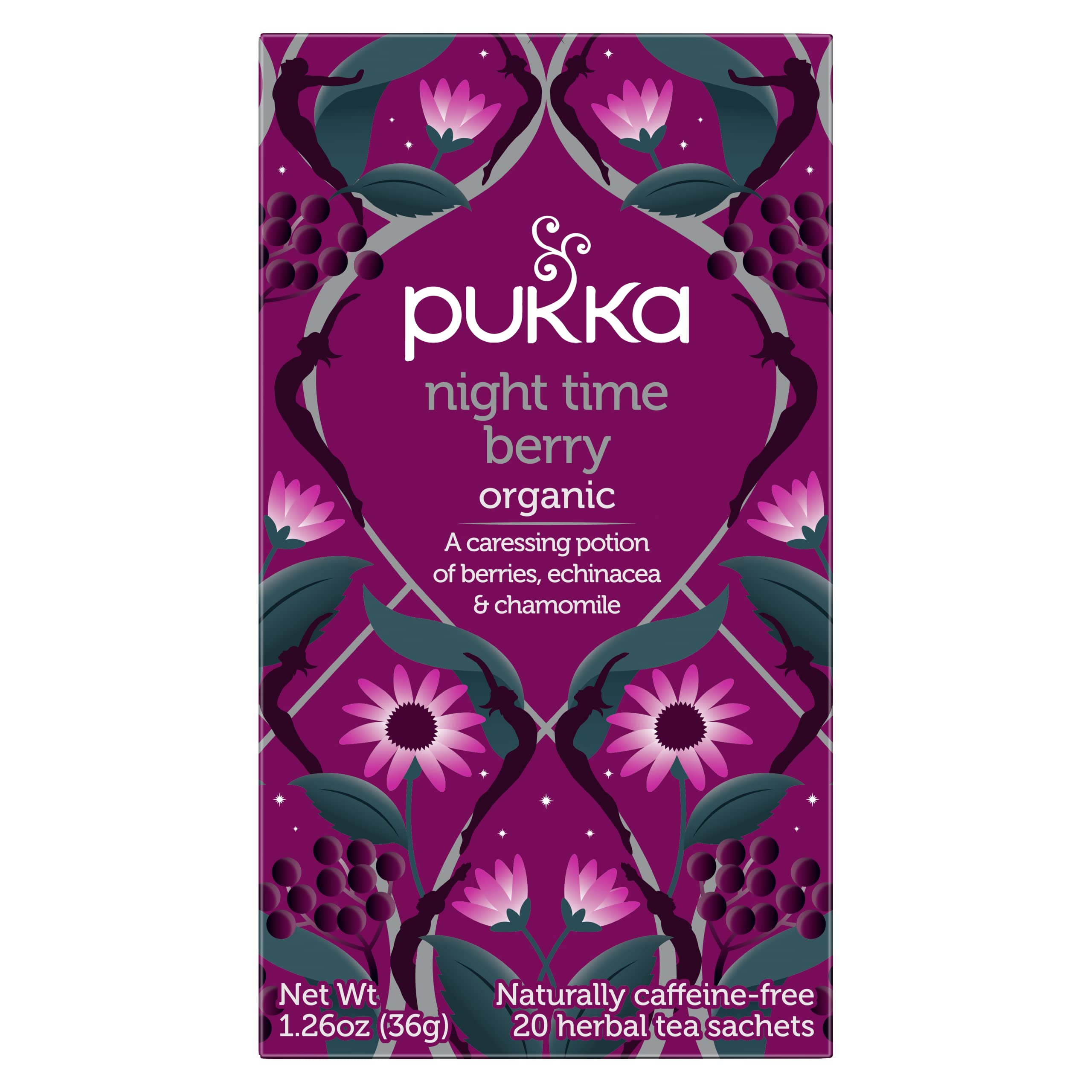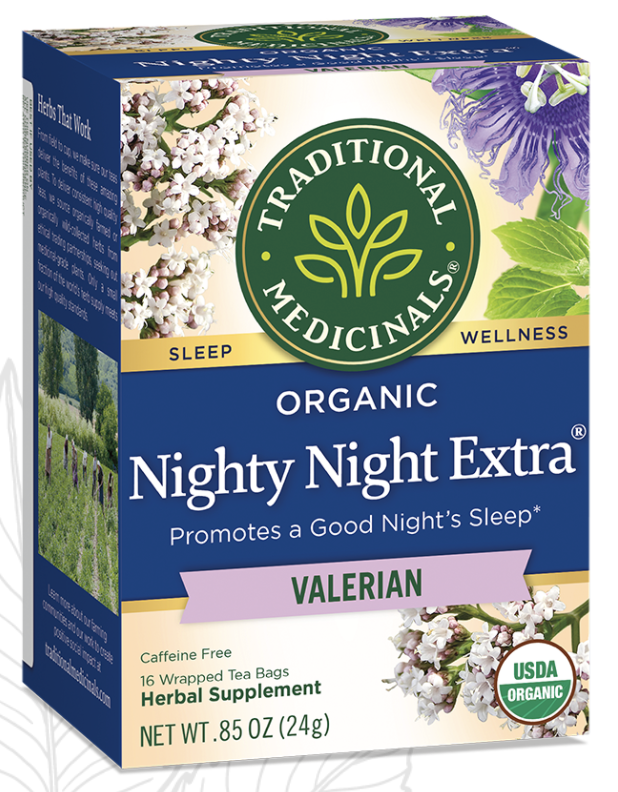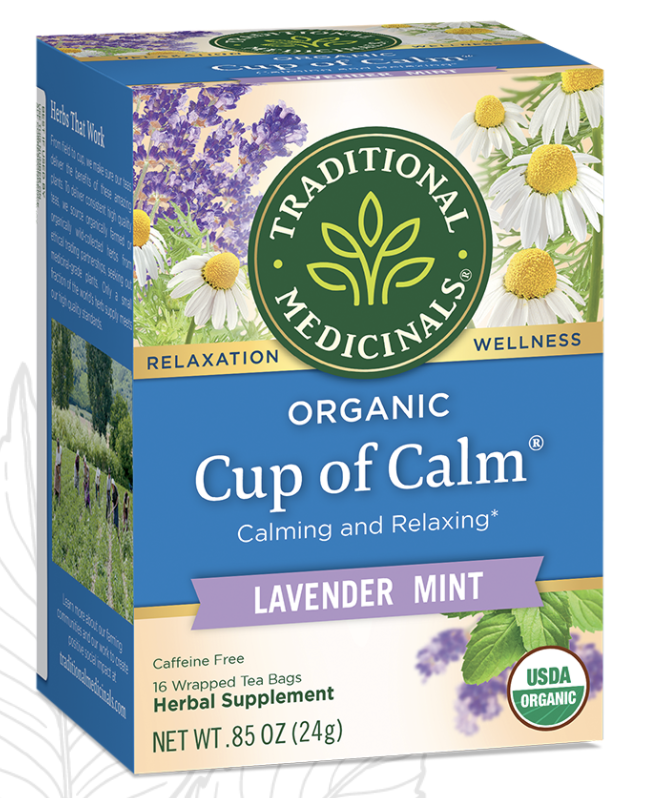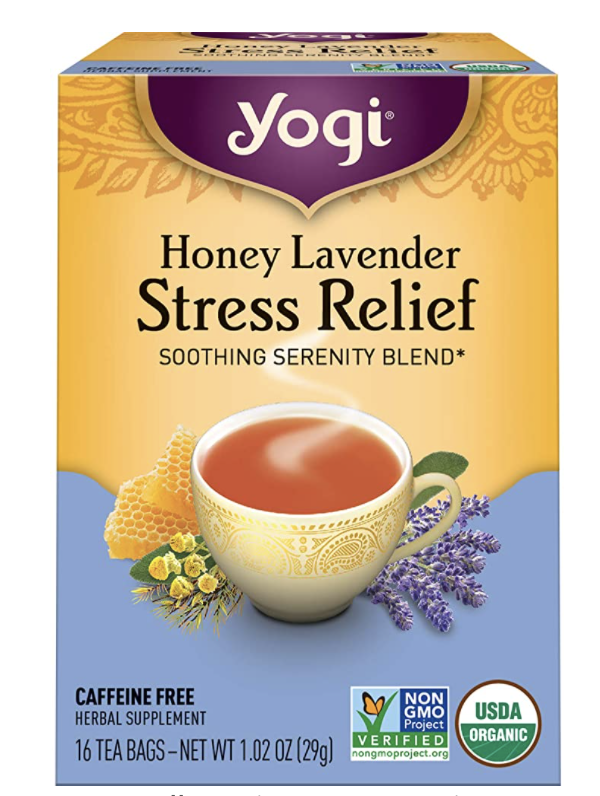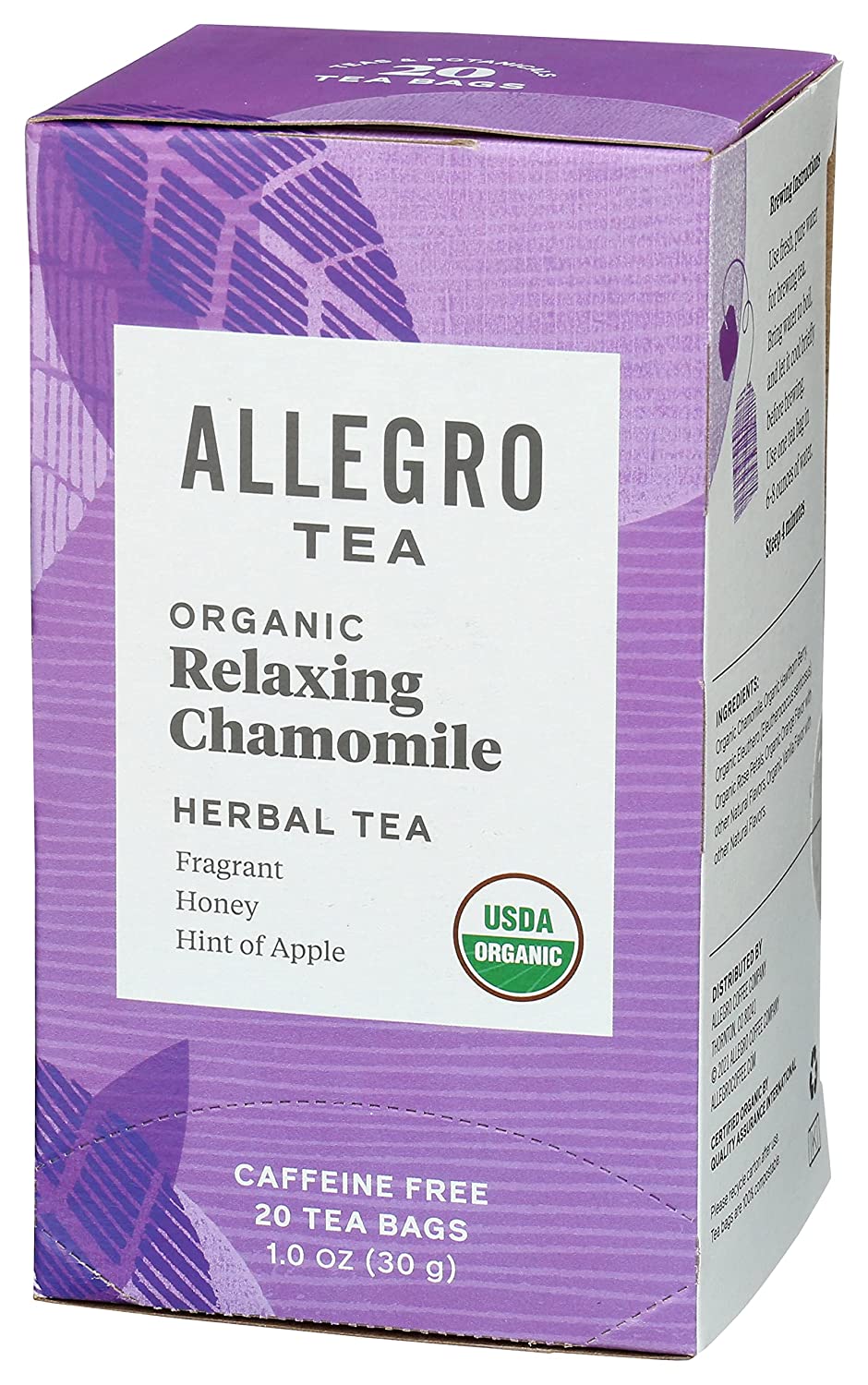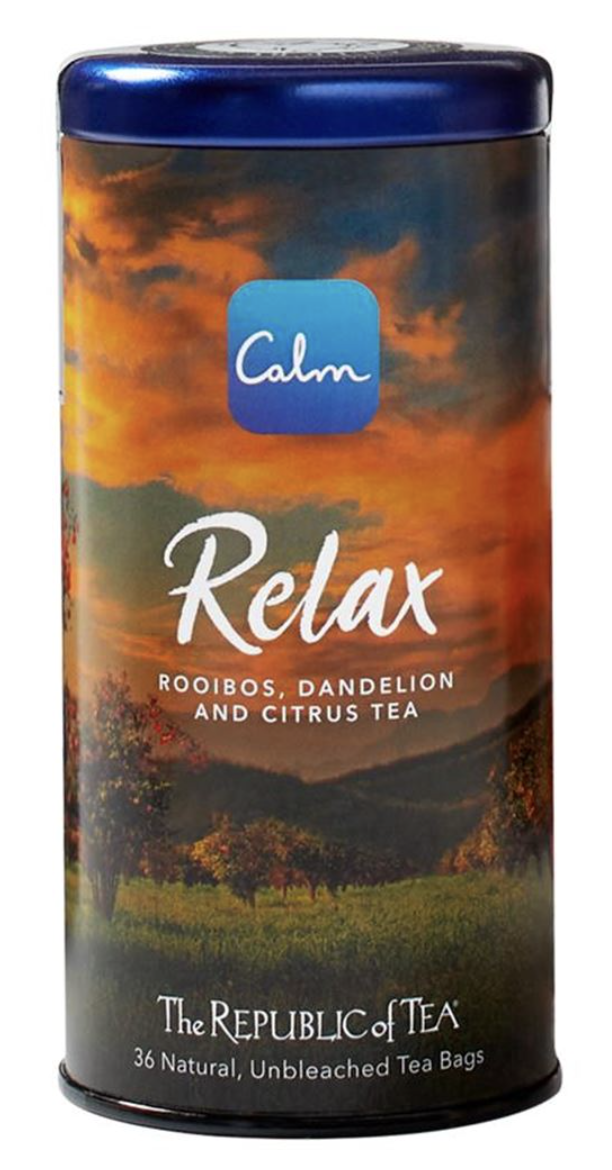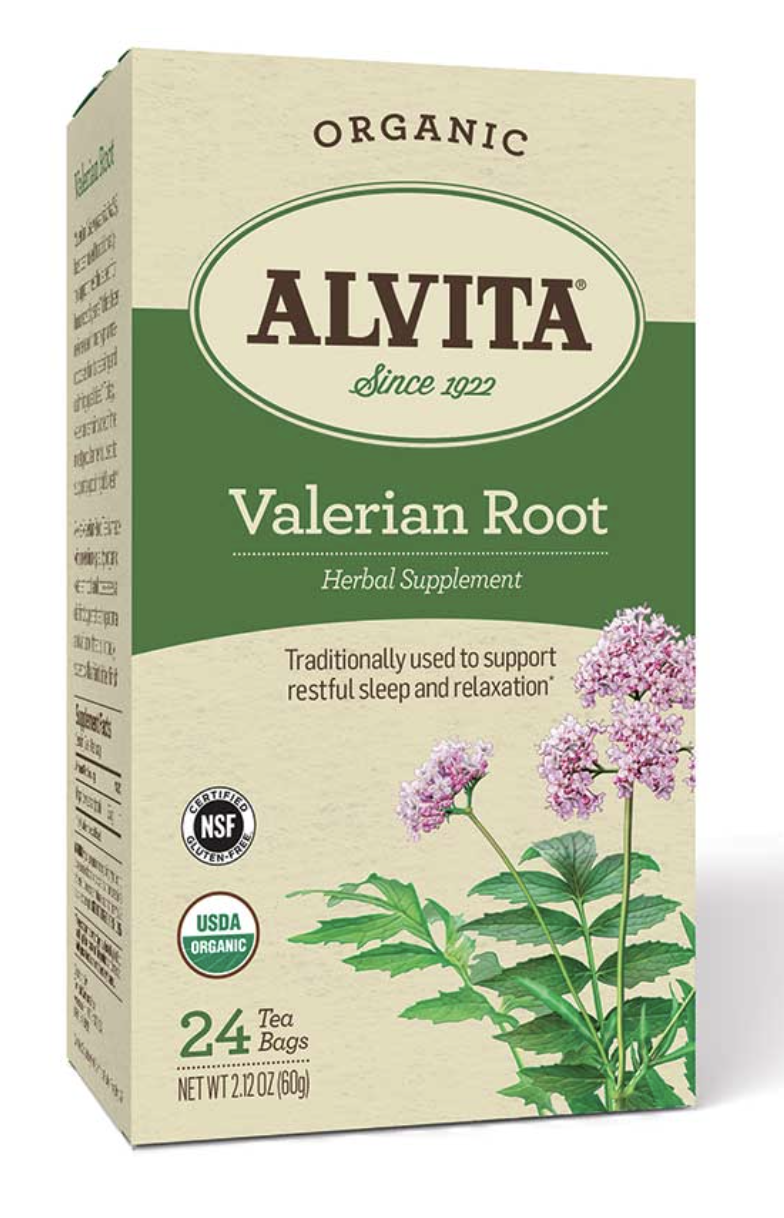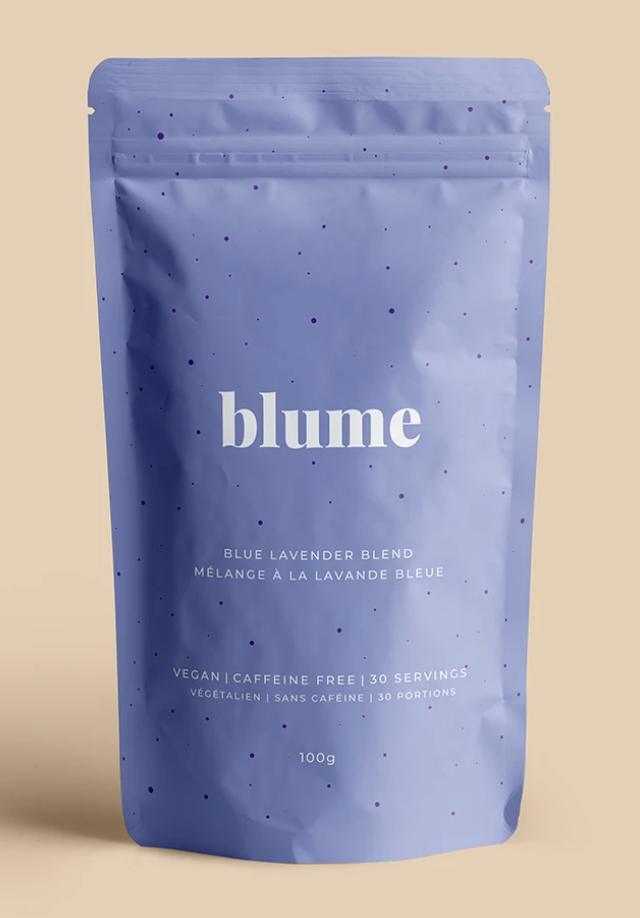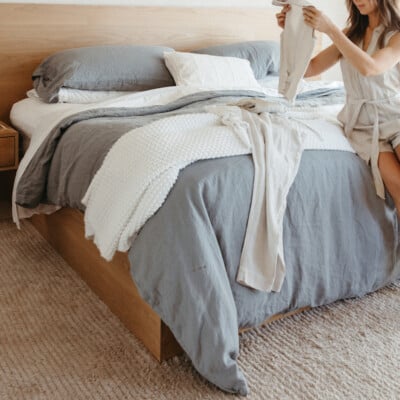We may receive a portion of sales if you purchase a product through a link in this article.
Sift through the tea box at your favorite spa, and you’re bound to find options like chamomile, lemon balm, rose, and peppermint. But no surprise—herbal teas are one of life’s most simple and soothing pleasures. While creating a tea ritual is both comforting and grounding, calming teas are nothing new. For centuries, communities across the globe have celebrated the relaxing and tranquil qualities of tea. Tea is central in family gatherings, entertaining guests, and formal ceremonies. Ready to unwind? Read on to get your steep on. These are the best teas for anxiety and stress relief.
Featured image by Riley Blanks Reed.

The Skinny on Herbal Tea
Believe it or not, all tea comes from the same plant. From oolong to black tea or green tea, all caffeinated varieties hail from the Camellia sinensis plant. There are two main kinds: The Camellia sinensis sinensis and Camellia sinensis assamica. The former grows in China, Vietnam, Korea, and Japan. The latter grows more frequently in India, Sri Lanka, and Kenya. A small evergreen shrub or tree, the Camellia sinensis—also known as the ‘tea plant’—is what eventually becomes your piping hot cup of infused water.
What this means for herbal teas: They don’t stem from the Camellia sinensis. Instead, they’re typically a blend of spices, leaves, roots, dried flowers, fruit, bark, etc. Herbal teas are delicious, complex, and healing. There’s an expanse of flavors and options. However, they don’t technically come from the tea plant itself.

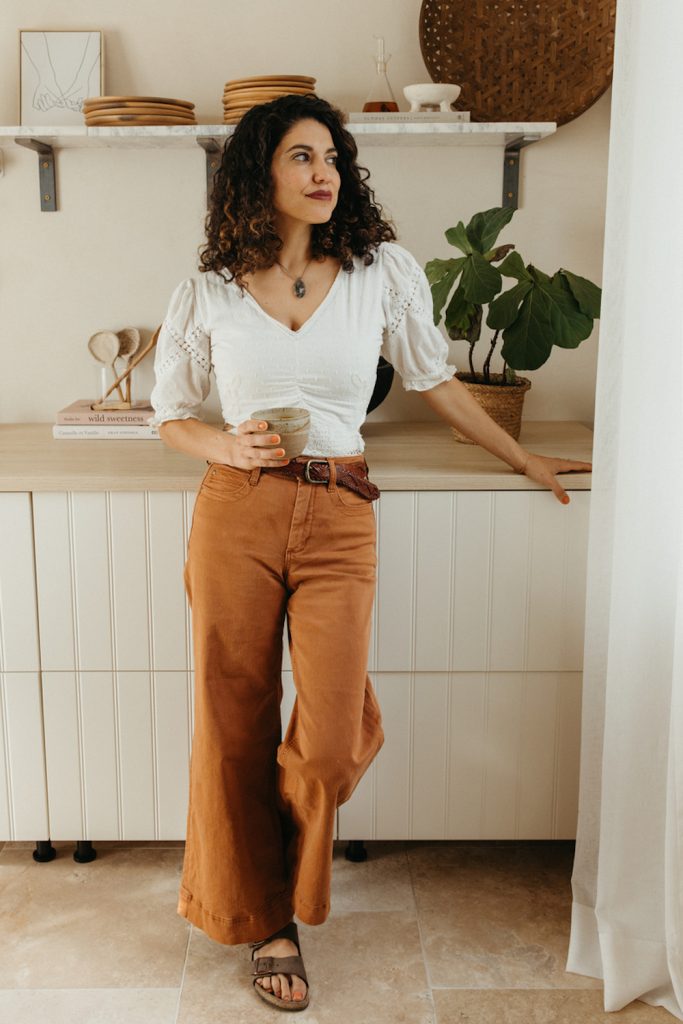
What is herbal tea?
Herbal tea is a beverage made from an infusion or decoction. A decoction is a method of extraction. Think boiling herbal or plant material. These infusions contain herbs, spices, or other plant materials. The more the merrier: Dried herbs, fruits, seeds, and roots are fair game. Steeped together, they make up deeply complex flavors and hues. Some herbal blends contain actual tea, although those aren’t as common. Varieties include ginger, ginseng, hibiscus, jasmine, rose hip, mint, rooibos (red tea), chamomile, and echinacea. Depending on the plant(s) used, they all have varying chemical compositions. You’ll find many of these ingredients in the best teas for stress relief.
Using Medicinal Herbs for Traditional Healthcare Needs
Throughout history—particularly in Eastern medicine—herbal teas have been applied therapeutically. They’ve always been an important component of traditional medicine. Centuries later, the evidence speaks for itself. Research confirms they contain antimicrobial, anti-inflammatory, and antioxidant properties. If you’ve ever tasted a vibrant pink hibiscus tea (hot or iced!), you can practically feel its powerful antioxidants running through your veins.
In many ways, it’s no longer folklore that herbal teas can provide a variety of health benefits. In fact, studies show that 60-80% of the world’s population depends on medicinal herbs for their healthcare needs. As always, speak with your healthcare provider before implementing a new supplement or herbal infusion routine.

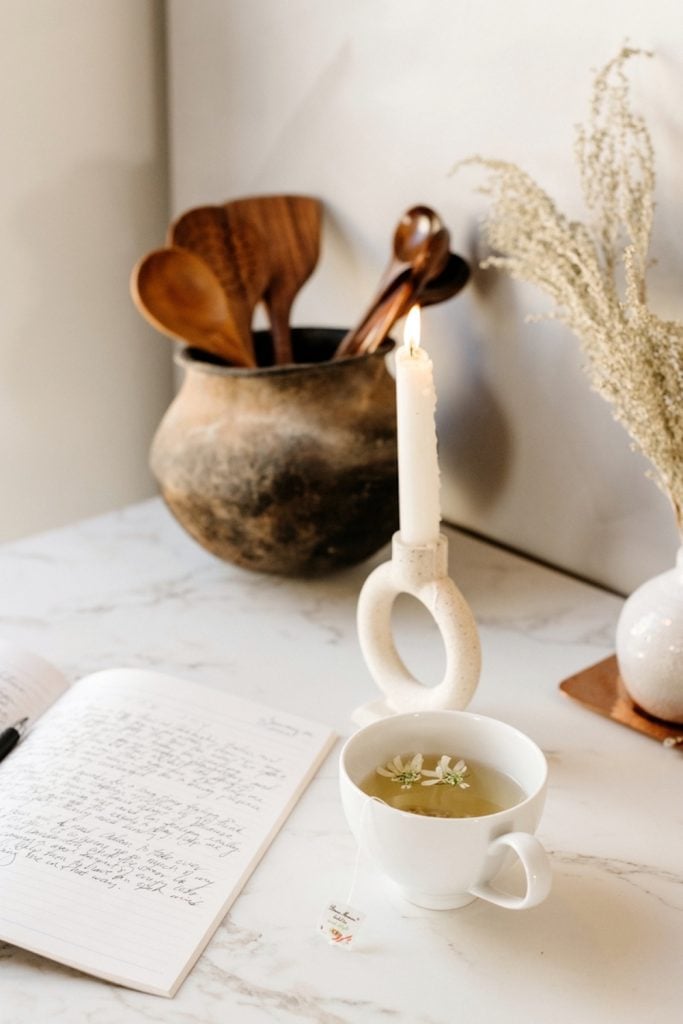
Benefits of Herbal Tea
More than just a wellness trend, herbal teas have been studied for their ability to boost immunity, energy, mitigate stress, and aid in sleep. Studies are ongoing, of course, but according to the U.S. Department of Agriculture, we already know the following:
- Chamomile tea has moderate antimicrobial activity.
- Peppermint tea has been found to have significant antimicrobial and antiviral activities, strong antioxidant and anti-tumor actions, and some antiallergenic potential.
- Based on a human clinical trial, it’s been found that drinking hibiscus tea “lowered blood pressure in a group of pre-hypertensive adults.”
6 Herbs to Drink for Relaxation
While some brews provide more health advantages than others, there’s plenty of evidence to support drinking tea regularly. Just be mindful of additives, like refined sugar. However, if you want more bang for your buck, take a look at these nutritious ways to upgrade your afternoon cup. They may have a lasting impact on your wellness.
Peppermint
Peppermint tea contains menthol, which is a naturally occurring muscle relaxant. Mint tea can help encourage full-body relaxation after a stressful day.
Rose
Rose petals can be added to many different kinds of tea, and impart a floral, slightly sweet flavor to whatever tea they mix with. Rose helps to reduce stress and anxiety and promotes calm and relaxation. While roses that are grown specifically for consumption often have a more concentrated flavor and beneficial properties, even traditional garden roses may have similar effects when dried and infused in water.
Lavender
Like the rose, lavender is another common floral addition to teas. Lavender has been shown to have a positive effect on anxiety disorders by promoting healthy sleep patterns and relaxation. Lavender can be found in a wide range of different teas, from floral black teas to specially concocted “sleepy time” blends.
Chamomile
Chamomile tea is another popular tea, known for its ability to soothe and calm. A study at the University of Pennsylvania found it could help in treating generalized anxiety disorder. It’s also a popular sleep aid—the perfect bedtime tea.
Lemon Balm
Lemon balm tea works to reduce the stress hormone cortisol and doesn’t cause drowsiness. It can also boost alertness and concentration. Of all herbal varieties, it’s a great choice if you need to reset (without caffeine) halfway through the day.
Passionflower
Passionflower tea contains the flavone chrysin, which aids against anxiety. It may help you sleep more peacefully.


Why drink tea for anxiety?
Beyond what’s actually in your kettle, the elaborate ritual of brewing tea is stress-relieving. It requires intention, focus, and meditation. The simple act of making (and sipping) a cup of tea can be both introspective and clarifying—a welcome interlude on an otherwise stressful day. Whether you brew a pot in the morning to set intentions at the beginning of the day or prepare a soothing cup to unwind before bed, preparing and drinking tea is self-care. Herbal tea is an oasis of calm and clarity.
The 10 Best Teas for Anxiety
Look no further than the best teas for anxiety. Some subtle, some potent, they’re all comforting and delicious.
Blossom Vanilla Lavender Sleep Latte
Sip on this for a bit of calm. Whether you need a moment of bliss or some help with sleep, this herbal tea is for you. This caffeine-free blend is soothing, classic lavender accented with notes of perfectly-sweet vanilla. Blossom incorporates valerian root, l-theanine, and gaba to help you slow down, tune in, and experience restorative rest.
Harney and Sons Organic Peppermint
Packed with organic peppermint leaves from Oregon, this tea is refreshing in flavor and can help calm an overly-active stomach. This tea is all things soothing and lovely. It also has the best aroma when it’s brewing. You won’t want another peppermint variety!
Pukka Night Time Berry
Peace in a teacup, this tea features a blend of soothing ingredients, including rosehip, hibiscus, lavender, and valerian root. It’s the perfect cup before bedtime (and anytime you’re craving tea for anxiety relief). Naturally caffeine-free and ethically sourced, with 100% organically grown ingredients.
Traditional Medicinals Nighty Night
When we don’t feel like counting sheep all night, we love this calming blend of valerian root, passionflower, and lemon balm for its relaxing effect and pleasant taste.
Traditional Medicinals Cup of Calm
Another gem from Traditional Medicinals, this relaxing tea is like a quiet meditation—each sip is a step along an herbal journey around the world. Their blend includes passionflower, chamomile, lavender, and catnip, all known as nervines because they support the nervous system.
Yogi Honey Lavender Stress Relief Tea
With a sweet blend of florals and light citrus, this stress relief tea is popular for good reason. It tastes delicious and is packed with a soothing blend of lavender, chamomile, and lemon balm. All of these herbs are traditionally used to support relaxation.
Good & Gather Organic Chamomile Lavender Tea
Blended with calming chamomile and soothing lavender, this fair trade-certified tea is a gentle infusion perfect for stressful and chaotic days.
The Republic of Tea Calm Relax
Find stillness with a cup or two of this relaxing tea. It’s the perfect companion to your midday meditation. A grounding mix of earthy red rooibos and dandelion root, balanced with warm, sweet spices and sunny citrus, it’s heavenly.
Alvita Valerian Root
Valerian root has been used to support restful sleep since ancient times. Today, valerian remains one of the most popular herbs used to support a good night’s rest. This tea is made with premium-quality, organic valerian root, and possesses a distinctly penetrating aroma. Its flavor is initially sweet, with a faint bitter finish. It’s not for the faint of heart!
Blume Blue Lavender Blend
Lavender, coconut milk, and blue spirulina make this blend balanced, calming, and smooth. Formulated to soothe inflammation and settle restlessness, take a sip, turn your brain off, and relish in doing nothing. Anti-inflammatory, this blend helps boost your immune system while supporting your body’s natural sleep cycle. We can’t get enough.

